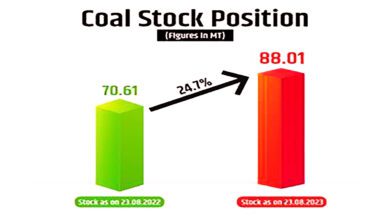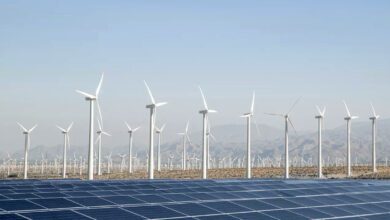In an effort to guarantee an uninterrupted power supply across the country, the Union Minister for Power and New & Renewable Energy, RK Singh, has outlined the government’s coal blending policy until March 2024. The primary focus of the Ministry of Power is to ensure an adequate availability of coal at Thermal Power Plants (TPPs) to meet the escalating demand for electricity.
Coal procurement, whether domestic or imported, is carried out separately by Thermal Power Plants based on their specific requirements. Since 1993, coal has been under an open general license (OGL), allowing thermal power plants to import coal based on their preferences and commercial prudence. Additionally, Domestic Coal Based (DCBs) plants have been importing coal for blending purposes since 2009, aiming to enhance the quality of coal through a mix of domestic and imported varieties.
Over the past 14 years, the import of coal for blending purposes has fluctuated, reaching a peak of 47.6 million tonnes in 2015-16 and declining to 8.1 million tonnes in 2021-22. The decline was attributed to increased availability of domestic coal resulting from policy measures to boost domestic production.
However, facing increased demand and a daily supply of domestic coal falling short of consumption, coal stocks at power plants dropped significantly from 28.7 million tonnes in June 2021 to 8.1 million tonnes in September 2021. In response, the Ministry of Power advised State GENCOs and Independent Power Producers to import coal at varying percentages to ensure sufficient stock levels.
Despite the improvement in the situation, the gap between daily coal consumption and arrival of domestic coal persisted, leading to the Ministry of Power’s directive on January 9, 2023, urging imports at 6% for blending to maintain adequate coal stocks at power plants until September 2023.
However, the power supply scenario remained challenging, with a consistent rise in power demand and inadequate supply of domestic coal. Consequently, the Ministry of Power, in a letter dated October 25, 2023, directed all GENCOs to continue importing coal for blending at 6% until March 2024 to ensure a steady power supply across the country.
Addressing concerns about the price difference between imported and domestic coal, the Ministry highlighted that the pricing of imported coal is dynamic and linked to international indices, ocean freight, insurance, and other factors. The cost of electricity generation depends on the quantity and price of imported coal used by each generating company.
To address potential concerns about tariff increases, the Ministry clarified that the regulatory bodies, such as the SERCs/CERC, fix tariffs after a thorough examination of input costs, ensuring that any excessive claims by generators are not passed through in tariffs.












